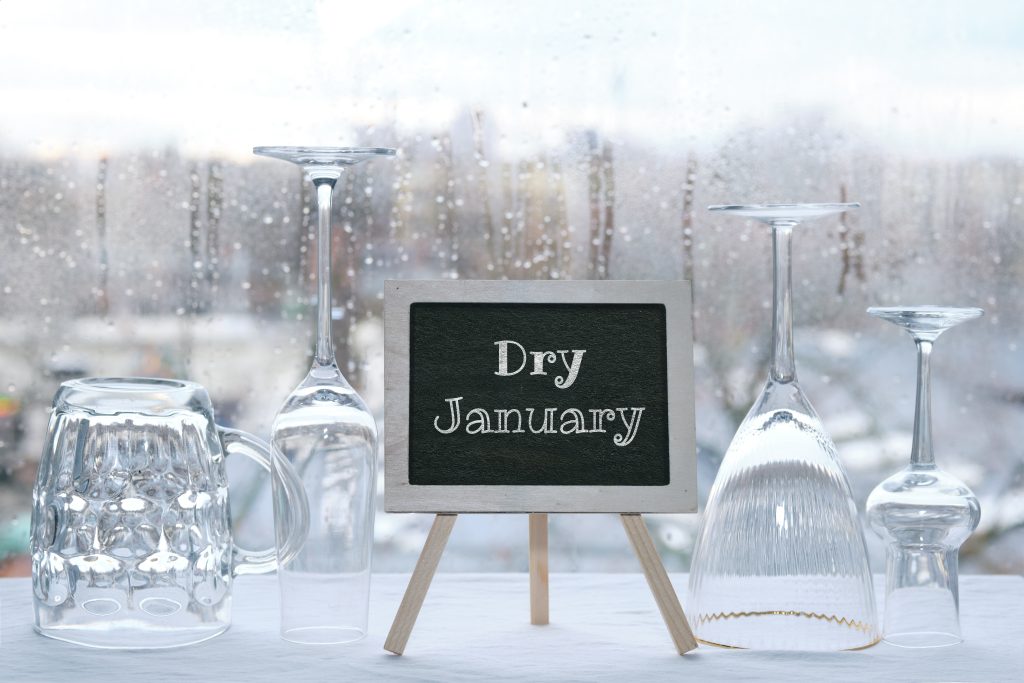Editor’s Note: If you struggle with mental illness, please see a mental health professional. They are incredible allies and part of any healthy support system.
—
If you have a complicated relationship with alcohol, I’m here to tell you that you’re not alone. A lot of mommy culture involves alcohol as a way of coping with the everyday stressors of life as a parent. Although I understand why that is, it’s hard to see the line between coping mechanisms and addiction. I’ve learned in therapy that any vice or unhealthy habit can be destructive if gone unchecked.
If you’ve ever considered dry January, let me assure you, it’s well worth it. I’ve abstained from alcohol during January in some form or fashion for about ten years (sure, I was pregnant or nursing for the better part of three years). I only sometimes make it the entire 31 days. For some years, I only drink on the weekends. And other years, like this year, I combine abstaining from alcohol with a nutrition reset. With alcohol, like with fitness, any effort is better than none. My goal is to feel better after holiday parties between Halloween and New Year’s.
I’ve compiled a list of tools I use to get through the month. Please note that for me, the practice is about resetting and giving my body a rest. Shaming myself into completing the entire 31 days or guilting myself when I enjoy just one glass at dinner defeats the purpose of building a healthy relationship with alcohol. If you struggle with mental illness or vices, please see a mental health professional. They are incredible allies and part of any healthy support system.

How to Get Started: Dry January
- There’s an app for that! I use the app Sunnyside. It’s a great app if you thrive on verbal affirmations and validation. Every day that I continue on my path in January, a Sunnyside rep (I can’t tell if it’s a bot) sends me congratulations. It seems small, but it works. Also, if you enjoy tracking your progress (like fitness) this app is great! The focus isn’t sobriety as much as it is mindfulness.
- Decide your why and write it down. Why do you want to abstain for 31 days? Why does it matter to you? The answer to this will be a powerful motivator throughout the month.
- Tell people who you usually enjoy a cocktail with. They might join you but be prepared to go at it alone if you have to.
- Suppose you’re an extrovert; schedule events with friends that don’t involve alcohol. There are plenty of things you can do: hiking, working out, going to the movies, going shopping, going for fancy tea or artisan coffee, and going to any predominant kid location (the zoo comes to mind). Staying away from friends to abstain might seem like the answer, but (for me) it can get depressing.
- Every day that your body rests will make you feel that much better. Note the mornings in January that you wake up feeling great and write a note about them. Make a voice memo on your phone of the small but significant physical and mental changes you see during the month. The results will be great motivation to go the entire month.
- I said it before, but I’ll repeat it: if you only make it to the 27th of January… or have one drink on the 15th, don’t shame yourself. You are a human being with real life happening all around you. I read an interesting article about shame/guilt, and one of my favorite quotes was, “Unresolved guilt is like having a snooze alarm in your head that won’t shut off.” Don’t add the results of dry January to your guilt bucket.
Whether you decide to skip dry January this year or if you participate in dry July (yes, it’s a thing), remember that the practice is one of self-exploration. Ask yourself hard questions and be honest. Last year, I asked myself hard questions and decided that damp January was more realistic than dry January. I made it 25 days out of 31 days without drinking. It was a success because I set realistic expectations and met the goal of consuming less.
These are tools that have worked for me in January and that I carry over throughout the year. Being mindful of drinks, like with calories, is a practice of being present in the small and significant choices of everyday life. If you want to join me in dry January, it’s not too late. There’s plenty of room on the wagon.
Editor’s Note: If you struggle with mental illness, please see a mental health professional. They are incredible allies and part of any healthy support system.
















